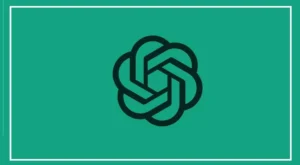Union IT Minister Ashwini Vaishnav announced on Thursday that the Digital Personal Data Protection (DPDP) rules are ready and will be released within the next 10 days.
The minister said an extensive consultation process was conducted before finalizing these rules.
He confirmed that the rules will be implemented by September 28. Vaishnav shared this during a pre-event of the AI Impact Summit.
The main purpose of the DPDP rules is to protect citizens’ personal information and prevent misuse by companies. Let’s look at the key provisions of this law.
Why Is the Law Needed?
Today, everyone uses online services like banking, social media, or e-commerce.
While using these services, personal information such as names, addresses, mobile numbers, email IDs, and financial data is shared with multiple companies and apps.
If this data is leaked or misused, it could cause serious harm. The DPDP law aims to ensure the security of personal data in the digital world.
Key Provisions of the DPDP Law
Control Over Personal Data: Every individual will have full control over their data.
Companies must get clear consent before using any personal information. Consent can be given in any of India’s 22 official languages.
Transparency: Companies must explain why they are collecting data and how it will be used. They can only collect data that is necessary and use it for the stated purpose.
Data Breach Notification: If a data leak happens, companies must immediately inform the affected users and regulatory authorities.
Protection for Children: Special rules will protect children under 18 from targeted ads and potential misuse.
Rights of Citizens: Individuals can view, correct, delete their data and withdraw consent at any time.
Data Protection Board (DPB): An independent DPB will monitor compliance, handle complaints, and impose penalties on companies that break the rules.
Media Sector Concerns
Journalist organizations and the Editors Guild have raised concerns about the DPDP Act, particularly Section 7, which requires consent before collecting or publishing information.
Media groups argue this could limit journalistic freedom. For instance, publishing a report on a corrupt official would require consent, which could undermine the purpose of investigative journalism.
There is also worry that the Data Protection Board could force journalists to reveal their sources, weakening the Right to Information (RTI) Act.
The law imposes heavy penalties, ranging from ₹50 crore to ₹200 crore. Journalists have requested the government to amend the law or include clear safeguards, but no action has been taken yet.
Because of these concerns, the media sector fears that the DPDP law may affect press freedom.

























